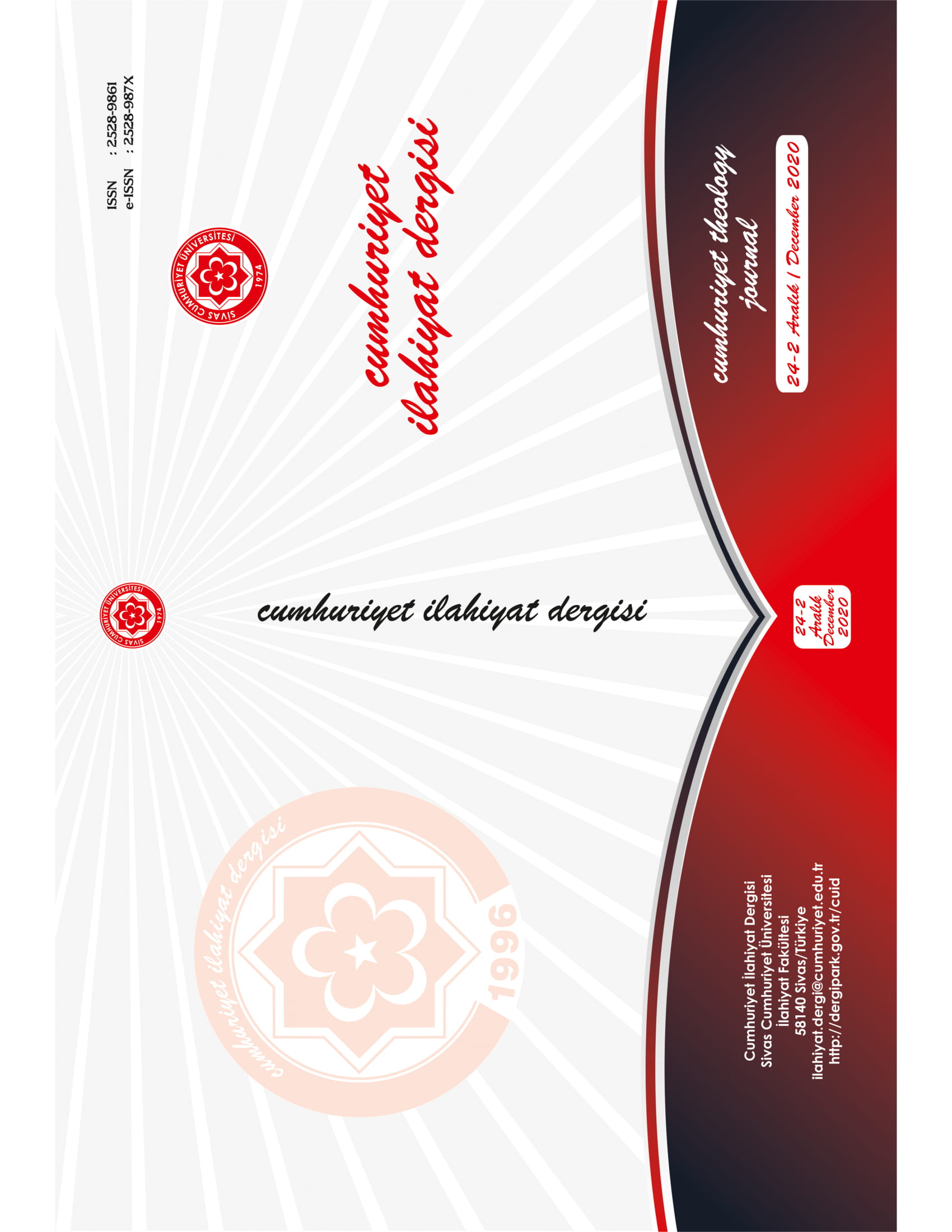İngiltere’de İslam Eğitimi: Fırsatlar ve Tehditler
Islamic Education in England: Opportunities and Threats
Author(s): İrfan ErdoğanSubject(s): Theology and Religion, Islam studies, State/Government and Education, Sociology of Education
Published by: Cumhuriyet Üniversitesi İlahyat Fakültesi
Keywords: Religious education; Islamic education; England; Supplementary education; Madrasa; Home schooling;
Summary/Abstract: Our study aimed to investigate what Muslim families in England have the opportunity to have religious education for their children and to examine the institutions or structures that provide Islamic education opportunities. Document analysis as a qualitative method was adopted in our study. Academic books and articles related to the subject, statistical records, various re-ports provided by the state and private institutions, school curricula, school inspection reports, and law articles, and some court decisions constitute the main data sources. Maximum diversi-ty sampling from the purposeful sampling types was used in determining the schools that were examined their Islamic curriculum, and it was tried to include as many different curriculum examples as possible. The fact that religious lessons are compulsory in schools in England and that this lesson is taught with a multicultural approach can be seen as an opportunity. On the other hand, there is a flexible education system in England. Muslim faith schools, supplementary schools (madrasa, maktab, and mosque school), and the home-schooling system are places and structures where Islamic education is carried out within the scope of formal and informal education. It is seen that Muslim faith schools are allowed to be opened as 'voluntary aided schools' by defining their distinctive religious characters as Muslim. The number of ‘state-funded Muslim schools’ is very limited, but their existence carries symbolic weight as a recognition of the Muslim com-munity’s right to establish such schools. It is understood that Muslim faith schools were opened mostly in the category of ‘independent schools’. Although there are various discussions about it, it is also important for Muslims to have informal religious education, in addition to formal education; it is allowed to open schools that offer Islamic education under the name of madrasa, maktab or mosque school. Families who send their children to the community schools because of the insufficient number of Muslim faith schools send their children to madāris (singular: madrasa), makātib (singular: maktab), or mosque schools which are called as ‘supplementary schools’. Social and moral values are taught here, including the teaching of the Qur'an, as well as sīrah (the biography of the Prophet), fiqh (jurisprudence), and Islamic history. It was understood that families who want to protect their children from the unhealthy envi-ronment of the school have the right to prefer home education, since the school is not compul-sory. In this sense, home-schooling can be considered as another opportunity for Muslim fami-lies to have their children Islamic Education. In addition to all these opportunities, the lack of a standard in these educational structures, the unqualified teachers, the inadequacy of curriculum development studies, and as a result, lack of qualified teaching materials are important problems. Economic limitations emerge as the first obstacle to increase the number of Muslim faith schools and to improve educational quali-ty. This situation threatens the quality of education by giving rise to poor buildings, insufficient resources, insufficient health and safety standards, and inexperienced management. Another threat to the quality of education is that teachers for independent schools do not have to have Qualified Teacher Status (QTS). While negative perceptions about Muslim schools have been identified as another challenge, it is expressed in various sources that Muslim students are frequently exposed to Islamophobia in various ways in public schools. Linking mosques and Islamic education institutions to radicalization and making them a subject of discussion is another noteworthy issue. Although there is no evidence of the relationship between Muslim schools and terrorist acts in England, Muslim schools are subjected to suspicions of being po-tential breeding grounds for future extremists. It seems necessary to take some actions for madrasahs who do not want to be under the con-trol of the state to reach certain standards and increase the quality of education. For example, Muslim supplementary schools should be united under the same roof of an association like The Association of Muslim Schools. This will help to attain certain standards, to increase the quality of education, and to create opportunities for various cooperation and sharing of experiences. Also, it should not be seen enough that the teachers in the madāris only have religious educa-tion, and their pedagogical competencies should be improved by subjecting them to various educational programs.
Journal: Cumhuriyet İlahiyat Dergisi
- Issue Year: 24/2020
- Issue No: 2
- Page Range: 687-714
- Page Count: 28
- Language: Turkish

